 Winter solstice. Hanukkah. Christmas. Winter’s celebratory season is here and for many that means gifts. Gifts given and gifts received. I’ve received many wonderful writing-related gifts through the years: beautiful pens, lovely calendars, a leather briefcase. One of my most memorable writing-related gifts was from my grandmother. Just before she died, she introduced me in a whisper to one of the hospice nurses as ‘my granddaughter who writes books.’ I hadn’t written my first book yet, though I wanted to. Her unwavering belief that I could do it was a gift that carried me until I wrote and sold my first novel. Whether they’re intangible or lovely and practical, gifts specific to writers cover the gamut. Here a number of other writers share some of the special gifts they’ve received.
Winter solstice. Hanukkah. Christmas. Winter’s celebratory season is here and for many that means gifts. Gifts given and gifts received. I’ve received many wonderful writing-related gifts through the years: beautiful pens, lovely calendars, a leather briefcase. One of my most memorable writing-related gifts was from my grandmother. Just before she died, she introduced me in a whisper to one of the hospice nurses as ‘my granddaughter who writes books.’ I hadn’t written my first book yet, though I wanted to. Her unwavering belief that I could do it was a gift that carried me until I wrote and sold my first novel. Whether they’re intangible or lovely and practical, gifts specific to writers cover the gamut. Here a number of other writers share some of the special gifts they’ve received.
Karen Autio: “At the 2002 BC Festival of the Arts I met fellow delegates from around BC–all children’s writers–and we formed an email group. Five of us continue to correspond regularly, critique each other’s work, and get together as often as we can. Having their support, insights, and encouragement is my best writing gift. Truly priceless.” Karen Autio is the author of “Sabotage” (Sono Nis Press) www.karenautio.com
Irene Watts: “A few years ago my granddaughter Rebecca gave me a journal, bound in real leather, with my name in gold letters inscribed on the cover. At the time I was going through a dry spell between books. Inside she had written, Happy Writing, and whether it was that or the feel and smell of the leather and the way the journal felt in my hands, but it became filled with ideas for a new book.” Irene Watts is the author of Touched by Fire and the Omnibus, Escape From Berlin. (Tundra) http://www.irenenwatts.com/author.html
Helen Mason: “The best writing gift I ever received was a copy of The Reader’s Encyclopedia (New York: Thomas Y Crowell Company, 1955). The gift was from my Aunt Marg, who was a high school English teacher. This gift reinforced my interest in language and showed me that she thought I was interested in it. Before the Internet, it was also a useful reference that saved me hours of research. I still have it on my reference shelf, even though I haven’t used it in years. It’s a symbol of my aunt’s confidence in and love of me.” Helen Mason is the author of Weird Nature and Agricultural Inventions: At the Top of the Field (Crabtree) http://soundsforfun.ca/category/parent-notes/reading-chair/
Caroline Woodward: “I used to write unselfconsciously in high school, one draft wonders, really. I even wrote a weekly column for two years and did special “youth” assignments for the Alaska Highway News. Not bad work for 75 cents by the line inch in 1968–70. Then came university and struggling with Paradise Lost for three months in honours English. My writing style clumped, clotted and clanked, unsure of itself, let’s be honest, my writing was a turgid pudding, festooned with ibids and opcits, and I was a writer afraid of emitting an original thought unless some dead guy had okayed it first.
But I kept at it, reading voraciously and writing sporadically, because it was my only hope of synthesizing my own life experience, of living an examined life. I wrote in isolation, working as a caretaker and gardener and substitute teacher and other jobs which allowed me time to hole up somewhere and write. But I lacked real confidence and mentors and a savvy, supportive writing community. Finally, I attended one glorious year of writing school in Nelson, BC, where real writers taught us and where visiting writers dropped in to read to us and to give workshops in nearly all genres. I discovered contemporary Canadian magazines. I played with form, tinkering with my backlog of content, still feeling like a prissy Victorian governess was in control of my writing until one day Paulette Jiles, poet and friend circa 1985, said to me: “Why don’t you write like you talk?” It’s the best writing advice I’ve ever had. Whenever I battle my perfectionist self to a standstill, I haul it out and remind myself that I have a distinctive voice and many more stories to tell!” Caroline Woodward is the author of“The Village of Many Hats” (Oolichan Books: 2012) www.carolinewoodward.ca
Leigh Carter: “The best writing gift I ever received was a blackboard, coloured and white chalk and an eraser so that I could ‘play’ school with my dolls. I was about 8, and it was what made me want to write, and to try to encourage others (my dolls) to feel the same as I did about words.” Leigh Carter is a senior corporate communications manager and freelance editor/proof reader.
Fiona McQuarrie: “The best writing gift I ever received was feedback from people who were honest enough to tell me when it could be better, and kind enough to show me how it could get there.” Fiona McQuarrie is the author of Industrial Relations in Canada (Wiley). www.allaboutwork.org
Lee Edward Fodi: “I think one of the best writing gifts I ever received was a thesaurus for my eleventh birthday from my best friend. He knew at that time I wanted to be a writer, and so he gave me quite a serious gift (not what you would typically expect one eleven-year-old boy to give to another). And, of course, this was before the time of computers and electronic dictionaries. It was a gift I actually needed, as we didn’t have a thesaurus in our house. I still have the thesaurus.” Lee Edward Fodi is the author of the Kendra Kandlestar series including Kendra Kandlestar and the Box of Whispers (Simply Read Books). www.leefodi.com
Gisela Sherman: “Many years ago when I was a teacher, and first dating my now husband, I found it hard to tell him my secret dream of becoming a writer. Would he think I was crazy? Would he like the stories I was writing out in longhand every chance I got? A month later on my birthday, he showed me his support – my own electric typewriter, the latest technology at the time. As I happily typed out my stories and articles, I knew he was the man for me.” Gisela Sherman is the author of Snake In My Toilet (HIP Books, April 2014) and a past president of CANSCAIP (The Canadian Society of Children’s Authors, Illustrators and Performers).
Nikki Tate: “Hands down, the best gift for me is some time to get away and focus on writing. Running a small, mixed farm, this is NOT an easy thing to accomplish. I am SO grateful to friends and family who have, over the years, stepped in to handle tasks ranging from goat milking to turkey wrangling to poop shovelling so I could slip away, hole up, and just write!” Nikki Tate is the author of Down to Earth: How Kids Help Feed the World (Orca) www.nikkitate.com
Sylvia McNicoll: “The best writing present I ever received was probably in 1999 (exact date is fuzzy) when my husband took it upon himself to create a website for me. No one had one in those days. As a computer programmer he didn’t know anything about design but he knew me and my books and proceeded on his own. Even back then writers wanted to work on their books not on promotion so I really appreciated the fact he didn’t bother me about content. The finished product was beautiful and the Quill and Quire wrote an article talking about the three (I think) authors who had one, me being one. Ironically the tool of promotion became an object which was promoted. Since then I’ve had several redesigns by visual artists but none with as much impact as that first.” Sylvia McNicoll is the author of Dying to Go Viral (Fitzhenry) www.sylviamcnicoll.com
Come back next week for more of our favorite writing-related gifts.
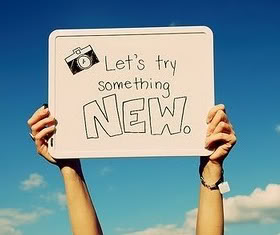 I’ve been making an effort to try new things over the last while. Even things I don’t feel all that confident about. I’ve started using a rowing machine (my body isn’t impressed but I’m not giving up yet); I’m working on a short story which takes me miles out of my comfort zone; and I’m about to use Adobe Acrobat for the first time to go through a set a page proofs. Small things, all of them, but the research is clear: doing things differently or learning something new (regardless of whether it’s something significant like a new language or something small like Adobe Acrobat) increases our brain activity and could make us more creative, more energetic, more social and just all around happier.
I’ve been making an effort to try new things over the last while. Even things I don’t feel all that confident about. I’ve started using a rowing machine (my body isn’t impressed but I’m not giving up yet); I’m working on a short story which takes me miles out of my comfort zone; and I’m about to use Adobe Acrobat for the first time to go through a set a page proofs. Small things, all of them, but the research is clear: doing things differently or learning something new (regardless of whether it’s something significant like a new language or something small like Adobe Acrobat) increases our brain activity and could make us more creative, more energetic, more social and just all around happier.


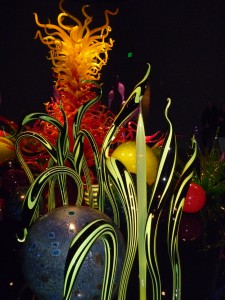



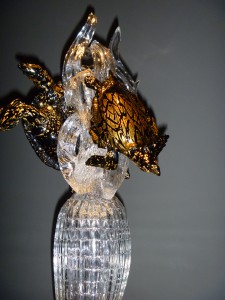
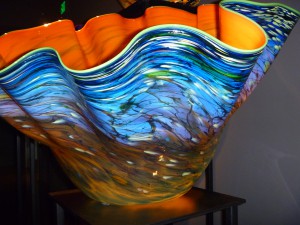






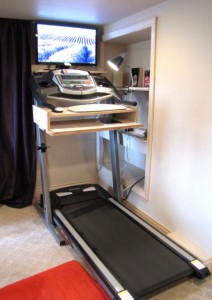

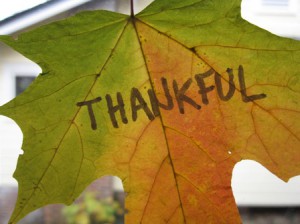











Comments